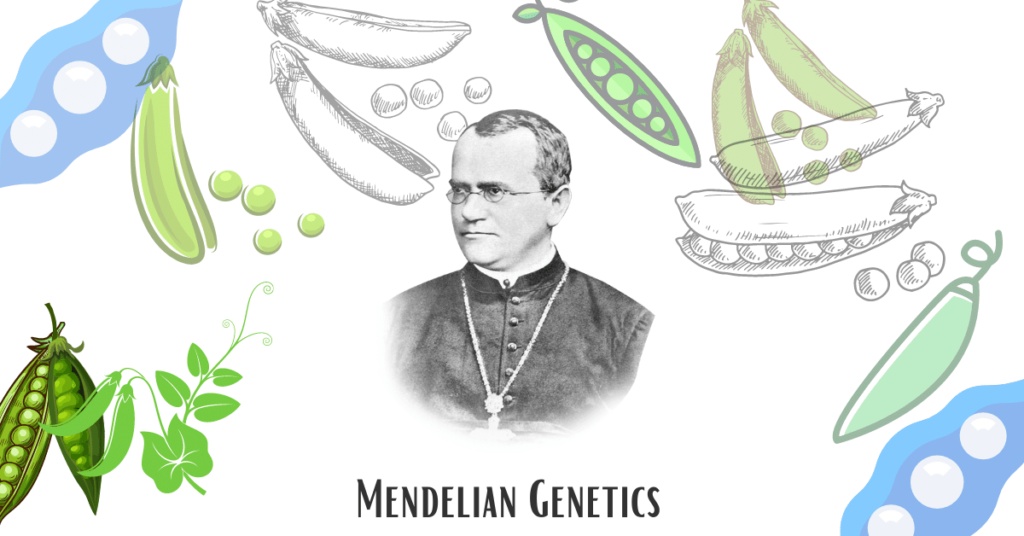Mendelian genetics it’s named after Gregor Johann Mendel(1822-1884) in biology. There are two famous names Darwin who was well-known and controversial in his own time, and Gregor Mendel both made a massive contribution to the field of biology. Gregor Mendel, in the area of genetics, if they could have gotten together those two theories when they finally came together as modern said synthesis is compelling; unfortunately, he died cause of obscurity.
Mendelism
Mendelism simply put, refers to the law of inheritance postulated by Gregor Mendel in 1865-66. In the 1990s, re-discovered and postulated by William Bateson. Gregor Mendel was an Austrian monk who lived between 1822 to 1884. He experimented on various plant species and animals for understanding their genetic variations. Gregor Johann Mendel is known as the Father of Modern Genetics.
History of Mendelism
Before the Mendelism, it was a mystery, “The law of Inheritance is quite unknown; no one can say why the same peculiarity, is sometimes inherited and sometimes not so; why the child often reverts in certain characters to its grandfather or grandmother or other much more remote ancestors…”
Charles Darwin, Origin of Species 1872
The concept of inheritance of physical ‘units’ (later called genes) was accepted, and scientists had reported on many hybridization experiments in both animals and plants.
Yet no one had set forth principles of inheritance, which could be used as a universal theory to explain how traits in offspring can be predicted from traits in the parents.
Mendel Experiments
Gregor Mendel experimented with pea plants by crossing various strains and observing the characteristics of their offspring. He also experiments on drosophila, but success was recorded on pea plants. Gregor Mendel, between 1856 and 1863, cultivated and tested some 28,000 pea plants.
Why did he select the Garden pea (Pisum Sativum)?
There are some following reasons:-
- It can be grown in a small area.
- Produce lots of offspring.
- Produce pure plants when allowed to self-pollinate for several generations.
- It can be artificially cross-pollinated.
Monohybrid Cross


Need full article